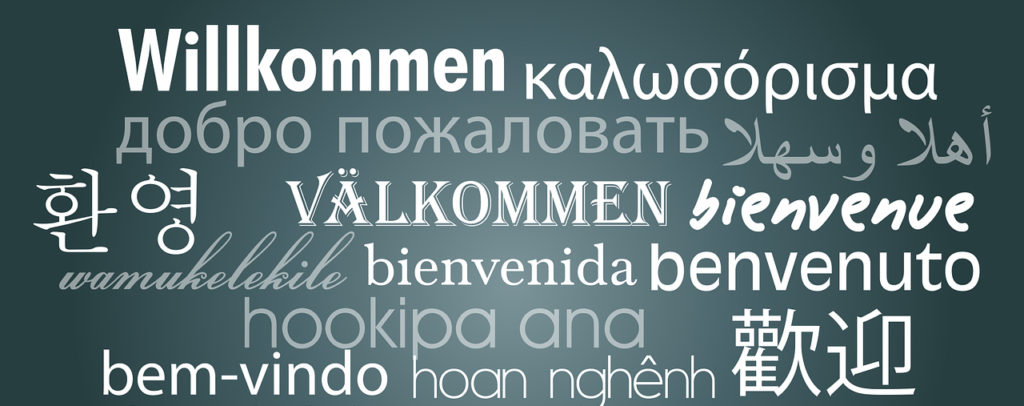Language has immense power. It allows us to express emotion, desire, intent, ideas and values. Language is said to be what makes us different from animals. With a language comes an associated culture, identity and community. Know what it means to chuck a u-ey, do a Maccas run or dob on someone? You’re probably Australian, or familiar with Australian English.
I am a native English speaker. I have no difficulties partaking in Australian culture, no difficulties relating to and understanding the white side of my family. But I am also an Arab who is not fluent in Arabic.
Don’t get me wrong, I can speak Arabic, but certainly not with the fluency and expertise of an Arab born and raised in the Middle East.
This struggle isn’t unique to, but is certainly accentuated by, being of mixed Arab and British heritage. Having both parents being born and raised in the West means that my Arabic is going to be even worse than other Western Arabs, especially when only one parent can speak Arabic (and not fluently). The boundaries of a culture are often set by its language. For me, this means that not speaking Arabic fluently often places me outside my culture.
Not speaking Arabic means that no matter how much I try to embrace Arab culture, I can never wholly be an Arab.
I’m an Arab who can’t speak Arabic, but I wish I could. I wish I understood the nuances of Arab culture; I wish I could speak to my grandparents in their native language; I wish I could one day revisit the Middle East without feeling like a tourist. Without speaking the language, I will always be missing out on a part of my culture. Whether it’s a separate conversation between relatives or some friends to trying to explain a joke to me, I’m stuck on the outside.
My Arab family has always been more than accommodating of me. They speak Arabic but English is their first language. We share mutual experiences of what it means to be an Australian Arab. But when it comes to Arab culture in the Middle East, it’s easy to feel like an outsider. Feeling like you’re on the outside of your own culture or community is never a nice feeling.
This feeling not only applies to Arabs like myself but Western Arabs who can speak Arabic fluently. It is that unique feeling of neither wholly belonging to a Western culture nor an Arab culture and community.
I think this is best expressed by British-Iraqi rapper Lowkey in his song Cradle of Civillisation: “I feel like an immigrant, Englishman amongst Arabs and an Arab amongst Englishmen.” Because his first language is English and his heritage is Arab, he is perceived by Arabs to be English (as he cannot fully engage with Arab culture) and he is perceived by English people to be Arab (as his Arabic cultural heritage prevents him from being wholly ‘English’).
It demonstrates the real part that language can play in being able to engage fully with one’s own culture. This struggle is also one that often contributes to the identity crises that many mixed individuals like me might experience, because we feel that we can’t fully engage with the identities and cultures that we so desperately want to hold onto.
I lived in the Middle East for a few years. Because of my inability to speak Arabic, I had other Arabs tell me that I wasn’t a “real” Arab or that I should “stick to being white”. Some would react in disgust, as if I was some kind of Arab failure, and others would deny me any right to call myself an Arab. That’s kinda hard when your face reads otherwise, when you physically look as Arab as I do.
It’s a weird feeling being proud of your Arab identity but then being rejected by other Arabs. It feels like being an imposter, except you have nowhere else to go. You can’t stop being yourself. You can’t wake up one day and be not half-Arab or not half-white.
At times I’ve rejected my own heritage, tried to claim “yeah whatever, I’m not an Arab”. But it’s not really something I can reject, no matter how much I might try. I’m an Arab. Non-white trumps whiteness. There’s no escaping it.
As I grow older, I’ve stopped trying to run away. I’ve decided to embrace my mixed heritage. I love eating my molokhiya, I love warak enab; dabke is my favourite dance music.
This desire to embrace one’s cultural heritage, despite possibly never being able to be fully immersed in it, is one shared by many other mixed individuals. Simply because of the language barrier, there will always be aspects of our identities that we just cannot engage with. It is a struggle that has no solution except for acceptance.
I, and many other children of immigrants, are locked off from the centre of our culture: our language. We are outsiders to our birthright. Speaking Arabic is something I hope to be able to do. I hope that one day I can laugh along with my friends without having to ask them to repeat themselves, to be able to have a conversation beyond saying my name and age, to feel accepted. But for now, I’m an Arab who can’t speak Arabic, and that’s okay.
About the author
Umar Butler is a young Australian-British-Lebanese-Portuguese writer. Born in Australia and raised in the United Arab Emirates, Umar now resides in Melbourne where he is studying Laws and Arts at La Trobe University. Umar's writing focuses on the intersection of politics and culture. His work has been featured in a number of outlets such as the Huffington Post and SBS. Umar is now working with Djed to publish his 'Mixed Stories' series, which he plans to adapt into a podcast.



